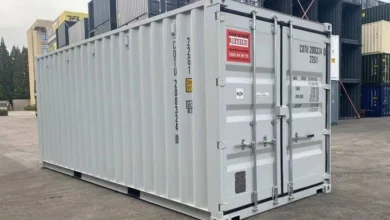
GDPR And Beyond: A Comprehensive Guide To Compliance Through Qualified Archiving
In today’s digital landscape, data protection and privacy have become paramount concerns for organizations across the globe. Businesses all over the globe are feeling the effects of the new data privacy regulations established by the European Union (EU) in 2018, known as the General Data Privacy Regulation (GDPR). Compliance with GDPR requires organizations to adopt robust measures to protect personal data, including the implementation of qualified archiving solutions. To help you achieve GDPR compliance and more, this detailed tutorial will examine the function of Qualified electronic archiving.
Understanding GDPR Compliance:
Companies’ approaches to personal data management have changed drastically since GDPR came into effect. It applies to businesses that process personal data of EU residents, regardless of the organization’s location. GDPR mandates stringent requirements for data protection, including the principles of lawfulness, fairness, and transparency in data processing, as well as the rights of data subjects to control their personal information.
Key Components Of GDPR Compliance:
Data Minimization:
Data collection and storage practices should be limited to what is strictly necessary for organizations to carry out their stated purposes. By keeping data to a minimum, we can lessen the likelihood of sensitive information falling into the wrong hands.
Data Security:
To comply with GDPR, businesses must take suitable organizational and technological steps to protect customers’ personal information. This includes encryption, access controls, and regular security assessments to detect and mitigate vulnerabilities.
Consent Management:
Prior to processing personal data, organizations are required to get explicit consent from data subjects. A person has the right to revoke their consent at any moment, and it should be freely given, precise, informed, and clear.
Data Subject Rights:
The ability to access, amend, and erase personal data is one of many rights granted to data subjects by GDPR. Organizations must establish procedures to facilitate the exercise of these rights and respond to data subject requests in a timely manner.
The Role Of Qualified Archiving In GDPR Compliance:
Qualified archiving plays a crucial role in helping organizations achieve and maintain GDPR compliance. Unlike traditional archiving solutions, qualified archiving solutions offer enhanced security, authenticity, and integrity for archived data, making them suitable for regulatory compliance purposes. Here’s how qualified archiving addresses key GDPR requirements:
Data Integrity:
Qualified archiving solutions use cryptographic techniques to ensure the integrity of archived data. By applying digital signatures and timestamps to archived documents, organizations can prove the authenticity and unaltered status of data, which is essential for compliance with GDPR’s integrity principle.
Long-Term Preservation:
GDPR requires organizations to retain personal data for no longer than necessary for the purposes for which it was collected. Qualified archiving solutions facilitate long-term preservation of archived data, ensuring that it remains accessible and unaltered for the required retention periods.
Audit Trails:
Qualified archiving solutions maintain detailed audit trails of all archived data, including information on access, modifications, and deletions. These audit trails provide organizations with visibility into how personal data is being processed and help demonstrate compliance with GDPR’s accountability principle.
Encryption:
Qualified archiving solutions often incorporate encryption mechanisms to protect archived data from unauthorized access. Encryption ensures that even if archived data is compromised, it remains unreadable without the appropriate decryption keys, thereby reducing the risk of data breaches.
Implementing Qualified Archiving For GDPR Compliance:
When implementing qualified archiving solutions for GDPR compliance, organizations should consider the following best practices:
Assess Data Lifecycle:
Conduct a thorough assessment of data lifecycle processes to identify areas where qualified archiving can enhance compliance and security.
Select Certified Solutions:
Select certified archiving systems that meet all applicable requirements, such as the European Union’s eIDAS (Electronic Identification, Authentication, and Trust Services).
Train Personnel:
Provide training to employees on the proper use of qualified archiving solutions and their role in GDPR compliance.
Conduct Regular Audits:
Implement regular audits of qualified archiving systems to ensure they continue to meet GDPR requirements and address any emerging risks.
Conclusion
In conclusion, GDPR compliance is a multifaceted challenge that requires organizations to adopt robust data protection measures, including qualified archiving solutions. By leveraging qualified archiving, organizations can ensure the integrity, authenticity, and security of archived data, thereby meeting GDPR requirements and safeguarding the rights of data subjects. As data privacy regulations continue to evolve, investing in qualified archiving is essential for organizations looking to stay ahead of compliance obligations and maintain trust with their customers.








